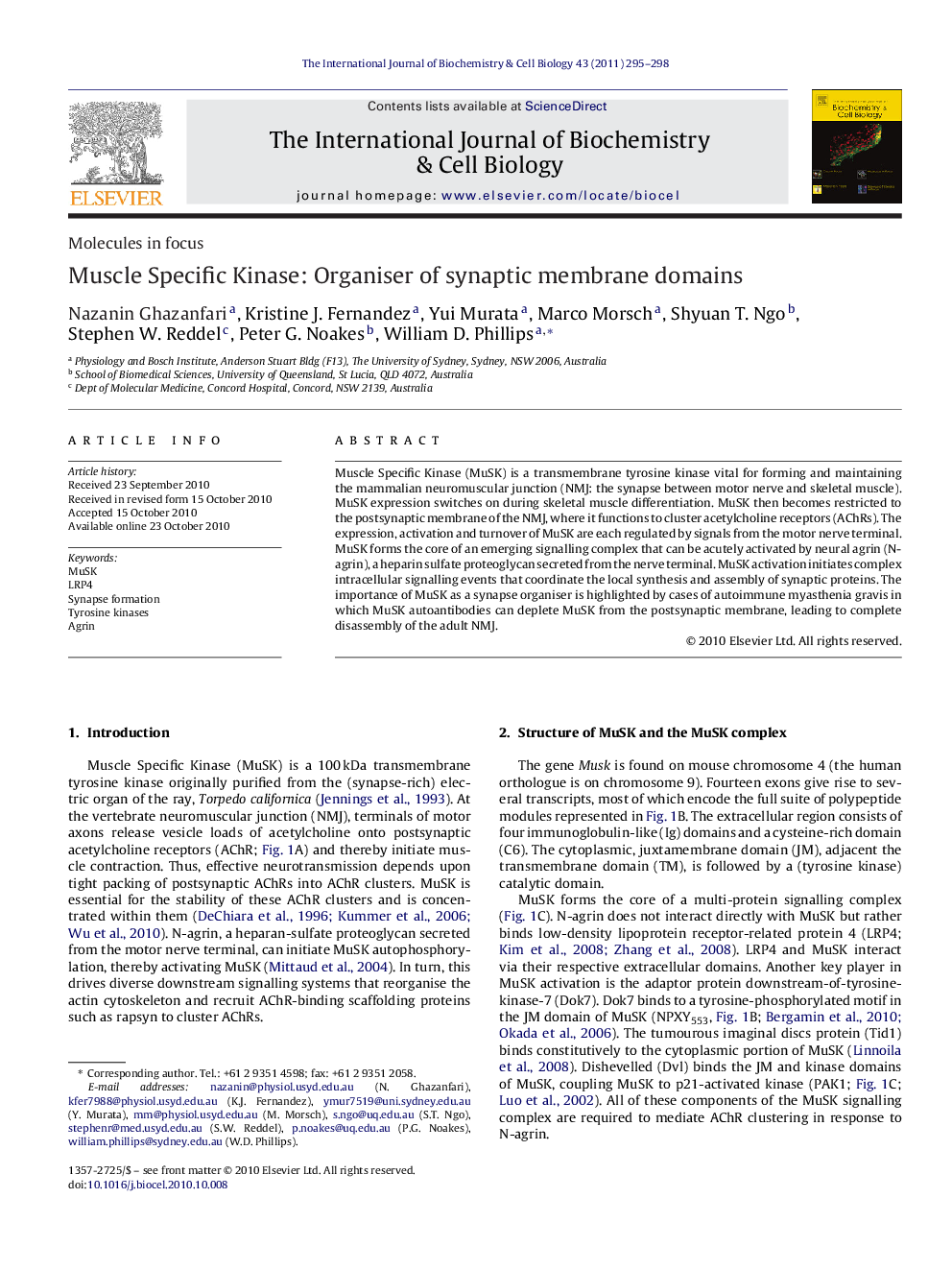| Article ID | Journal | Published Year | Pages | File Type |
|---|---|---|---|---|
| 8325205 | The International Journal of Biochemistry & Cell Biology | 2011 | 4 Pages |
Abstract
Muscle Specific Kinase (MuSK) is a transmembrane tyrosine kinase vital for forming and maintaining the mammalian neuromuscular junction (NMJ: the synapse between motor nerve and skeletal muscle). MuSK expression switches on during skeletal muscle differentiation. MuSK then becomes restricted to the postsynaptic membrane of the NMJ, where it functions to cluster acetylcholine receptors (AChRs). The expression, activation and turnover of MuSK are each regulated by signals from the motor nerve terminal. MuSK forms the core of an emerging signalling complex that can be acutely activated by neural agrin (N-agrin), a heparin sulfate proteoglycan secreted from the nerve terminal. MuSK activation initiates complex intracellular signalling events that coordinate the local synthesis and assembly of synaptic proteins. The importance of MuSK as a synapse organiser is highlighted by cases of autoimmune myasthenia gravis in which MuSK autoantibodies can deplete MuSK from the postsynaptic membrane, leading to complete disassembly of the adult NMJ.
Related Topics
Life Sciences
Biochemistry, Genetics and Molecular Biology
Biochemistry
Authors
Nazanin Ghazanfari, Kristine J. Fernandez, Yui Murata, Marco Morsch, Shyuan T. Ngo, Stephen W. Reddel, Peter G. Noakes, William D. Phillips,
